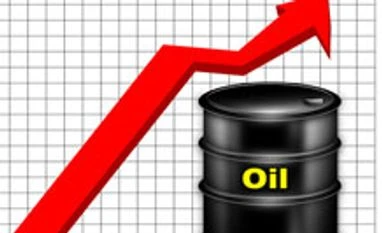Iraq crisis a fresh hit on OMCs
Subsidy bill worries drag down oil stock
)
<a href="http://www.shutterstock.com/pic-38365591/stock-photo-the-image-of-the-schedule-of-a-rise-in-prices-for-oil.html" target="_blank">Image</a> via Shutterstock
Tensions in Iraq pushed oil prices up, multiplying the woes of government-controlled oil marketing companies (OMCs), which had just begun to breathe easy on underrecoveries.
Brent crude shot up to a nine-month high, trading over $114 a barrel on supply concerns.
Armed groups have attacked a number of oil facilities across the north of Iraq since Monday, including the 320,000 barrels per day Baiji refinery and Bai Hassan oilfield. They took over the major northern city of Mosul, heading for the capital, Baghdad.
Also Read
Though Iraqi Oil Minister Abdul Kareem Luaiby assured that violence was unlikely to reach oilfields in southern Iraq, oil prices have moved higher on the international bourses. Iraq is the second-biggest producer among the Organization of The Petroleum Exporting Countries.
In India, shares of OMCs dropped on concerns of higher crude oil prices pushing the subsidy bill. Indian Oil Corporation and Bharat Petroleum dropped a little over five per cent each. Hindustan Petroleum fell 8.2 per cent. The benchmark Indian equities, Sensex and Nifty, declined almost 1.5 per cent each, the most since February 3, while the rupee fell the most against the dollar since January 24, down 52p or 0.9 per cent from its previous day's close of 59.25 to 59.77 a dollar, lowest level since May 12.
The benchmark Indian crude oil basket had moved up by more than a dollar to $108.52 a barrel on Thursday, the latest closing figure released by the government.
Oil companies and analysts, however, termed the crude oil spike a short term blip and said it was too premature be concerned about. “We tie up our crude (requirement) a long time ago. Any international crisis, thus, will not have an immediate impact on us,”said an official from Indian Oil.
India imports 24-25 million tonnes a year of crude from Iraq. An executive from an OMC said, “Our source of crude oil from Iraq is in a region which has not seen any tension so far. If tension reaches this region, we will look at alternative sources to buy crude.”
Crude exports from southern Iraq have remained unaffected by the current wave of violence sweeping the country to the north.
With India meeting around 85 per cent of India’s crude requirement through imports, further elevation in crude oil prices could derail the government’s plan to deregulate diesel. Beside, the fuel subsidy could balloon if domestic fuel retail prices are to remain unchanged.
CRISIL Research, in a recent report, said high underrecoveries hurt the profitability of both upstream and downstream oil companies. As India sells petroleum products such as diesel, cooking gas and kerosene at regulated prices, well below the cost, high underrecoveries on sales of these petroleum products have left deep holes in the financials of oil companies, both upstream and downstream.
Between 2008-09 and 2013-14, crude oil prices rose at a compounded annual rate of five per cent to $108 a barrel. In the same period, the rupee depreciated from 46 to 61 to a dollar (six per cent compounded annually). However, upstream public sector companies could not benefit from rising oil prices and weak currency as their net realisation declined to $41 per barrel in 2013-14 from $48 per barrel in 2008-09 due to increased share in under-recoveries.
More From This Section
Don't miss the most important news and views of the day. Get them on our Telegram channel
First Published: Jun 14 2014 | 12:50 AM IST


